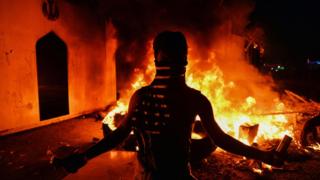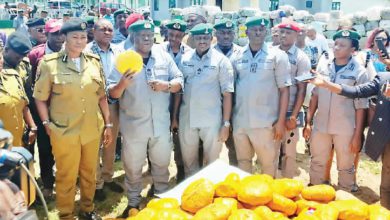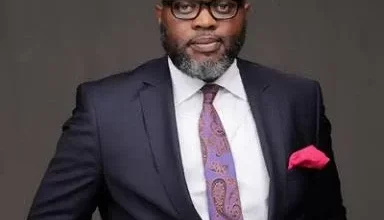
- At least eight people have been killed in Iraq in a fresh wave of protests in the southern city of Nasiriya.
At least eight people have been killed in Iraq in a fresh wave of protests in the southern city of Nasiriya.
Security forces opened fire in the city on Thursday to clear two bridges blocked by protesters, injuring 50.
Iraqis have been taking to the streets to demand more jobs, an end to corruption, and better public services.
The Iraqi military announced it was setting up military “crisis cells” to quell unrest.
The military command said an emergency unit had been created to “impose security and restore order”.
“On the orders of the commander in chief of the armed forces, Prime Minister Adel Abdel Mahdi, some military commanders have been appointed to this unit to direct and control all security and military forces and assist the governors in their mission,” it said in a statement.
This move by the Iraqi government comes a day after a group of protesters set fire to Iran’s consulate in the city of Najaf.
Demonstrators accuse Iran of interfering in Iraq’s internal affairs and propping up the government.
Protesters chanted “Iran out of Iraq” as flames engulfed the building.
Reports say staff at the consulate managed to flee just before protesters broke in. Iran swiftly condemned the attack and said that the Iraqi government was responsible for protecting its consulate.
This is the second attack on an Iranian consulate in Iraq this month after an office in the Shia holy city of Karbala was targeted three weeks ago.
Why are people protesting?
Mr Abdul Mahdi took office just over a year ago, promising reforms that have not materialised.
Young Iraqis angered by his failure to tackle high unemployment, endemic corruption and poor public services took to the streets of Baghdad for the first time at the beginning of October.
After the first wave of protests, which lasted six days and saw 149 civilians killed, Mr Abdul Mahdi promised to reshuffle his cabinet, cut the salaries of high-ranking officials, and announced schemes to reduce youth unemployment.
But the protesters said their demands had not been met and returned to the streets in late October.
President Barham Saleh has said Mr Abdul Mahdi will resign if parties can agree on a replacement.



